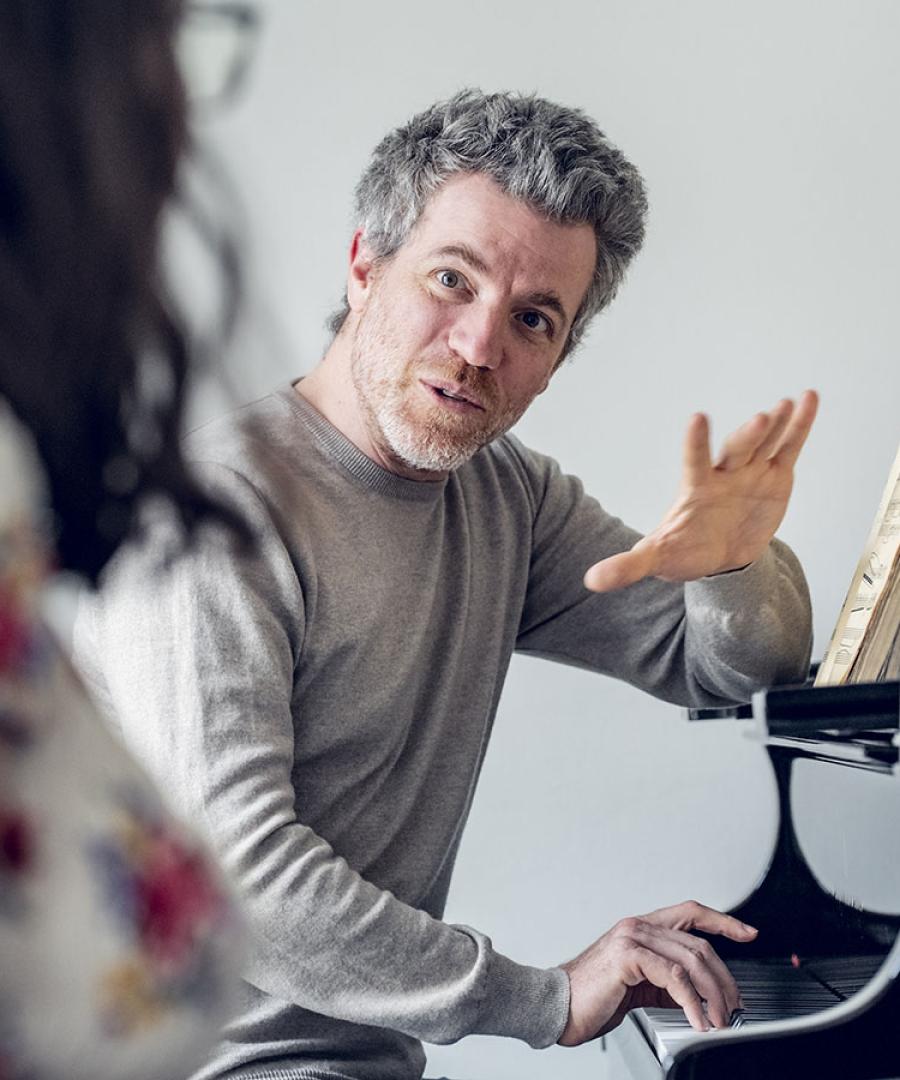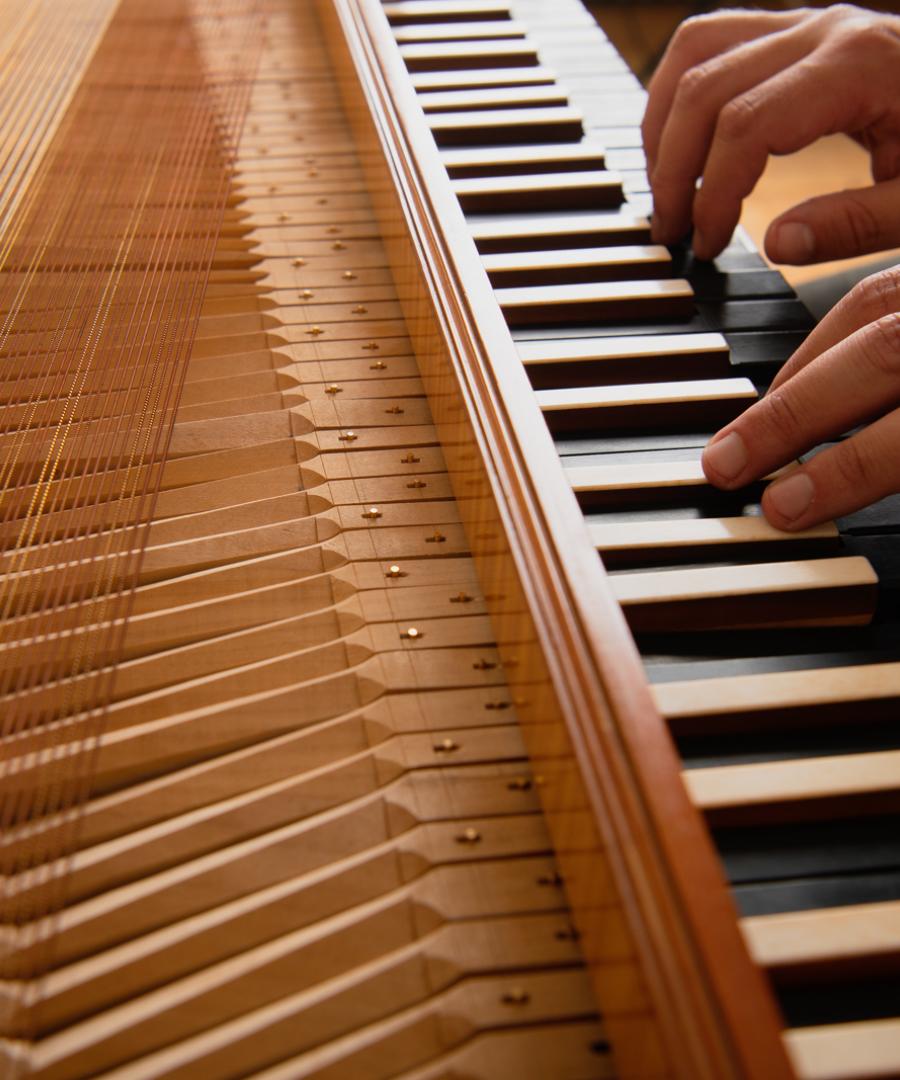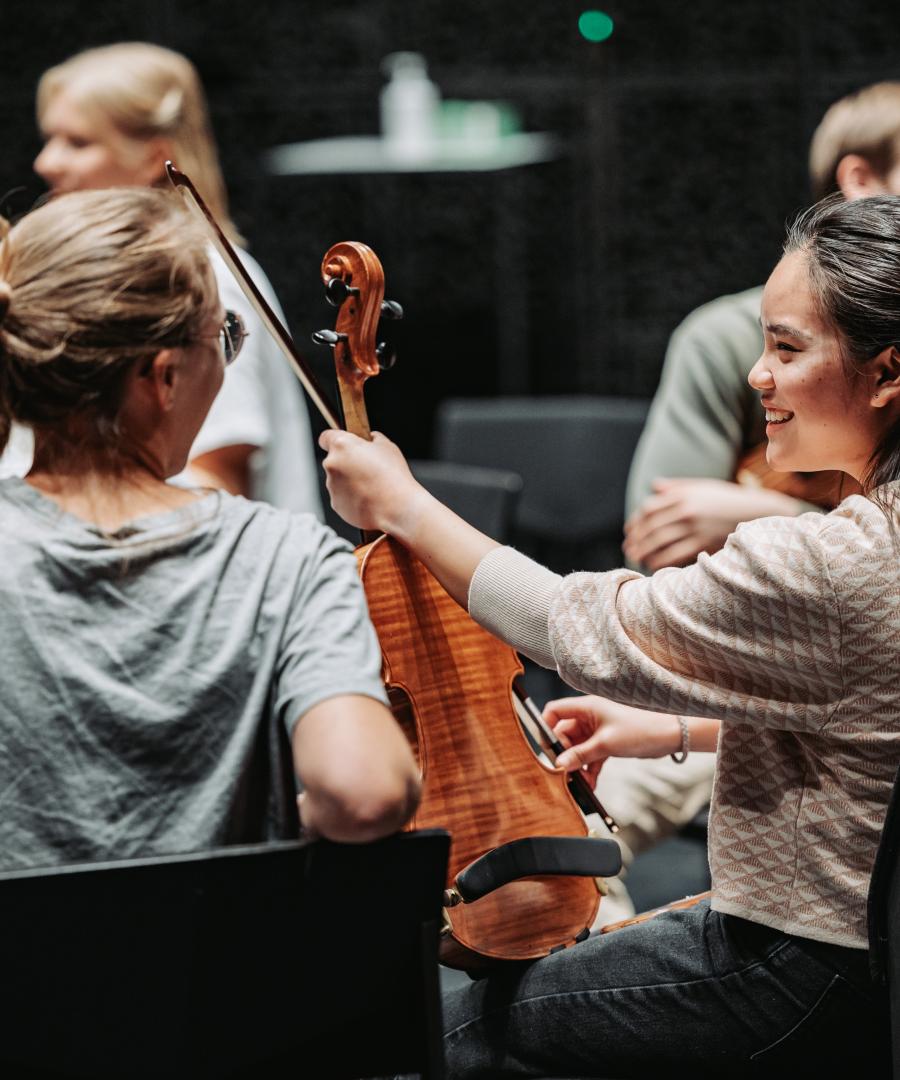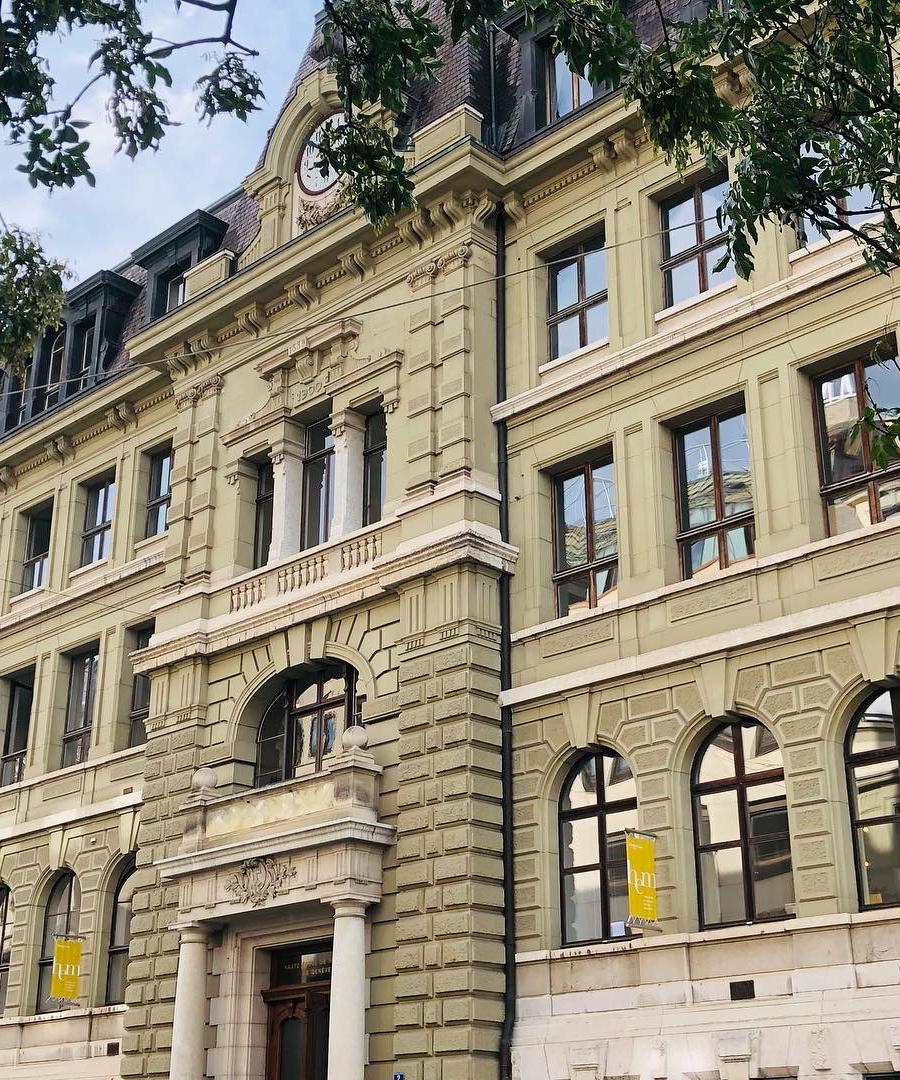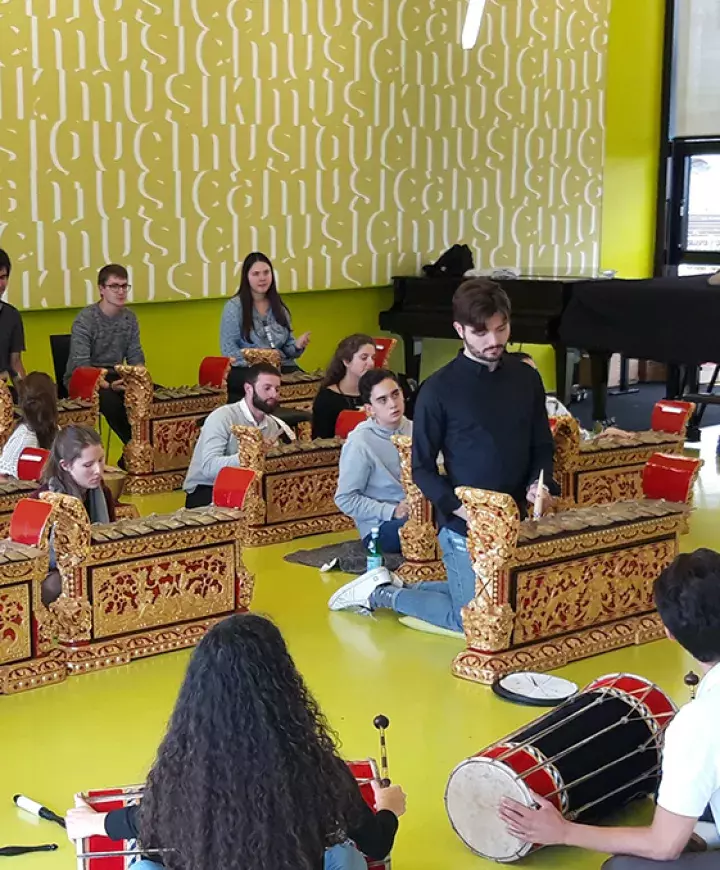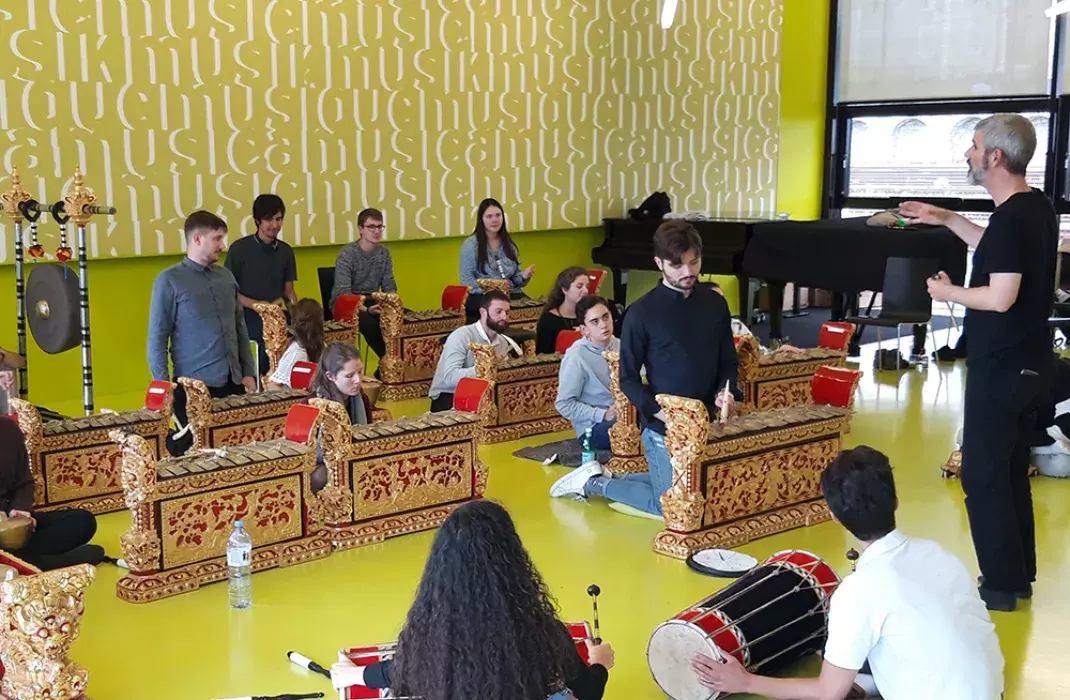- Studies
- Disciplines
- Research
- Events
- The school
Master of Arts in ethnomusicology
Relying as it does on the know-how of three partner institutions – the Haute école de musique de Genève, the Unité de musicologie de l’Université de Genève et the Institut d’ethnologie de l’Université de Neuchâtel - the Master of Arts in ethnomusicology is the first master’s degree in Switzerland, and one of only a handful in the world, to offer such a rich and inter-disciplinary approach.
Ethnomusicology is a field that aims to promote better understanding of the world through the study of musical practices. Indeed, far from being limited to mere aesthetics, appearances or entertainment, music, in all its forms, plays an active role in shaping societies. It is an integral part of relationships of transmission, identity, economy, exchange, emancipation or control, offering direct insights into the field of human relations and human dynamics.
Historically, ethnomusicology has combined three distinct approaches: the approach based on historical and formal parameters, used by musicologists; the one based on social contexts and customs, favoured by ethnologists; and the one based on the acquisition of knowledge through the practice of music, cultivated at conservatoires. Whilst experts agree that the three approaches complement one another, few courses currently bring them all together.
Study plans
Abbreviations :
e = marked exam
p = attendance (proven attendance compulsory)
rs = internship report
ce = co-assessment
A1, A2, etc. = first, second year, etc.
S1, S2, etc. = first, second term, etc.
Objectives
- To enable a deepening of scientific knowledge in terms of analysis, history, transcription and recording techniques for a variety of musical forms;
- To transmit intellectual tools that enable students to situate musical practices in the social setting in which they are produced and received, so as to identify the political, economic and legal stakes, not just at local level but also in the context of the ever-increasing globalisation of our world;
- To guarantee that each student is given a grounding in the practice of music, in Western practices and non-Western practices alike.
Structure
The master’s degree consists of a common trunk of three modules, taken by all the students, and in three modules depending on the students’ interests and choices.
The three common modules are designed to deepen theoretical, methodological and practical knowledge of the field of ethnomusicology as a whole. The three partner higher schools contribute to it on an equal basis, and the students will travel between the institutions, with a timetable that is designed to take these journeys into account and facilitate them.
The second part of the master’s course comprises a thematic module containing a choice of two courses (12 ECTS credits). The students are invited to consult the courses offered by the partner higher schools (HEM, UniNE and UniGE). By agreement with the scientific committee, the students also have the option to take classes at other Swiss institutions (including UniBas, UniBE, UniZH), and should obtain information from their respective websites. Their subsequent practical coursework (18 ECTS credits) aims to provide the bases for the ensuing Master’s Coursework (30 ECTS credits). The Scientific committee behind the master’s degree makes available a list of internships and/or ethnomusicology campuses and supports the student as they put this work in place. The practical work and the Master’s coursework must fit into one of the three strands of the master’s course.
Admission criteria
This innovative curriculum is aimed, first and foremost, at three types of students :
- Musicologists wanting to broaden their musical horizons and their career options;
- Musicians wanting to expand their repertoires but also to develop their thinking, more broadly, on the idea of music and the stakes involved;
- Ethnologists interested in the role of music in traditional social practices, but also in contemporary processes in economic globalisation, affirmation of identity or cultural development.
Subject to completion of the catch-up work identified, it is also open to students without prior training in one of these three fields.
Candidates’ applications are assessed on a case-by-case basis by the Scientific committee behind the Master’s degree and credits associated with the prior conditions or additional requirements may be requested. In all cases, experience in the practice of music will be required. If need be, streaming may be introduced during the Bachelor’s degree, or an additional year may be required before commencing the Master’s.
Admission to the Master’s requires good mastery of the French language, both written and oral.
Prerequisites / corequisites for admission
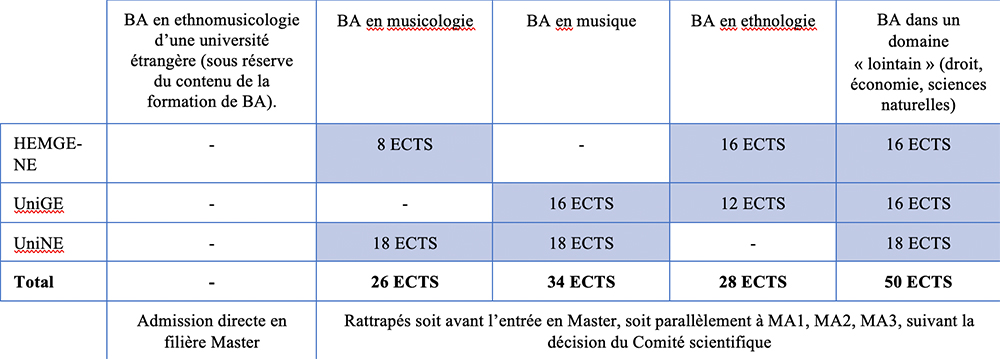
Prerequisites / corequisites per institution
HEM – Music [16 ECTS]
- “Elements of music” class, [4 ECTS]
- “Elements of musical analysis” class, [4 ECTS]
- “Musical practices” class, [8 ECTS]
UniGE – Musicology [16 ECTS]
- “Introduction to musicology research” class [4 ECTS]
- “History and languages of Western music” class [4 ECTS]
- “Questions of method” class [4 ECTS]
- Class on a variable subject [4 ECTS]
UniNE – Ethnology [18 ECTS]
- “Introduction to ethnology” class [6 ECTS]
- TP “The ethnographic method” (SELIN) [6 ECTS]
- “Foundational texts” class [3 ECTS]
- “Musics and societies” class [3 ECTS]
